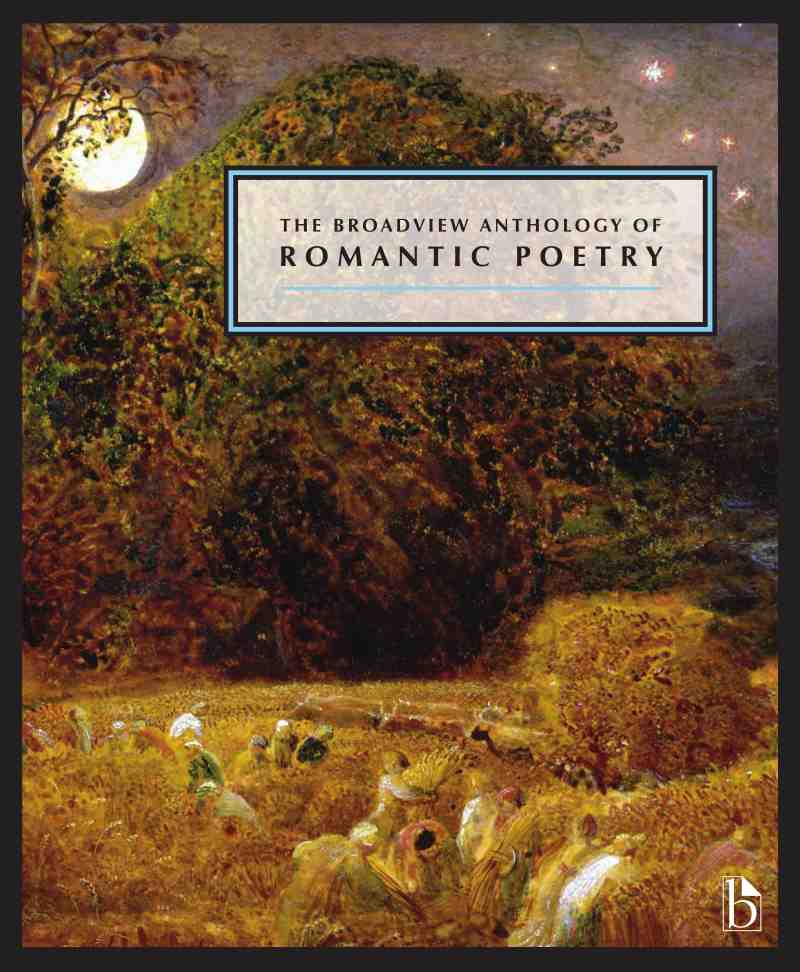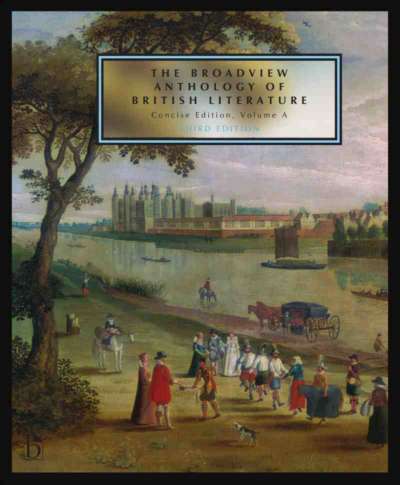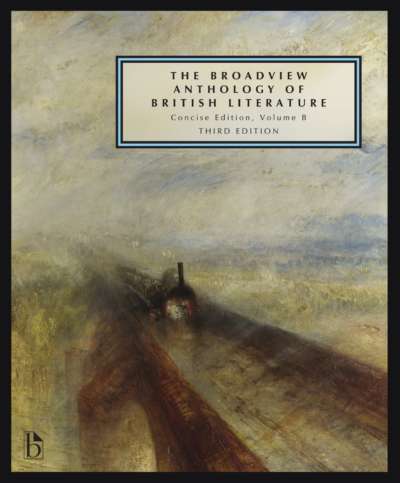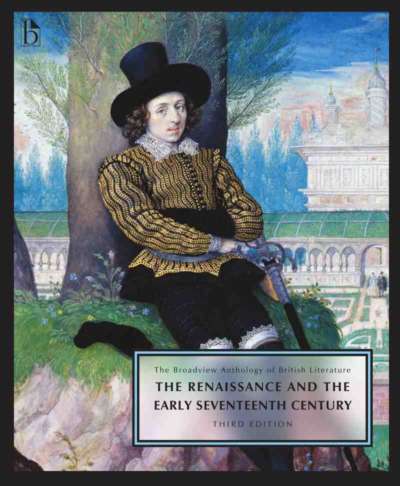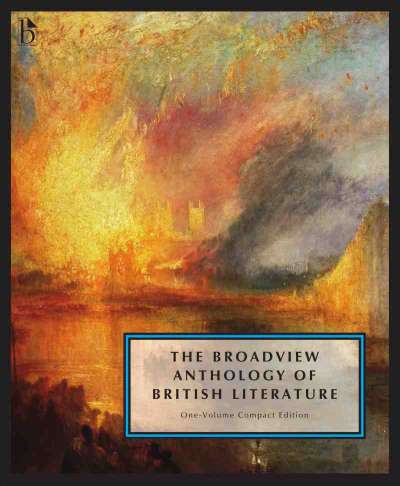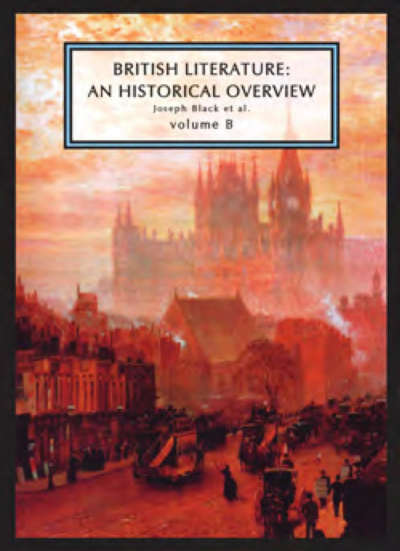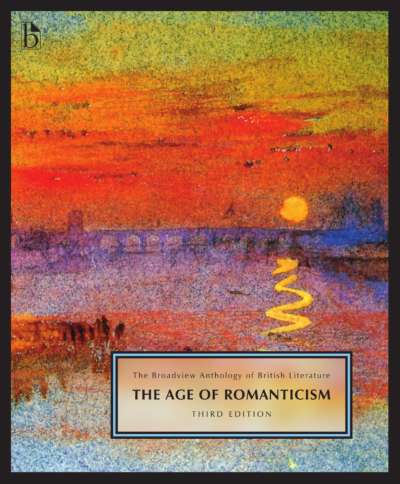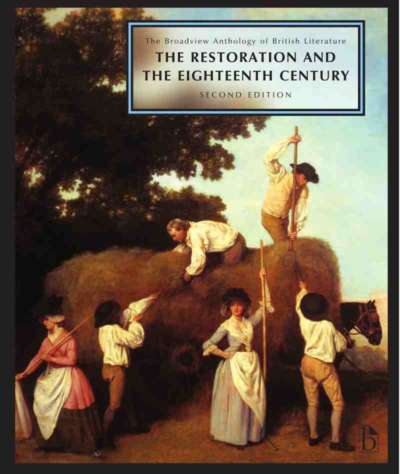Intended for courses with a major focus on poetry during the Romantic period, this volume includes all the poetry selections from Volume 4 of The Broadview Anthology of British Literature, along with a number of works newly edited for this volume. The Broadview Anthology of Romantic Poetry maintains the Broadview Anthology of British Literature’s characteristic balance of canonical favorites and lesser-known gems, featuring a breadth of poetry from William Blake to Phillis Wheatley, from Ebenezer Elliott to Felicia Hemans. To give a sense of the full sweep of the Romantic period, the anthology incorporates important early figures from William Collins to Phillis Wheatley, as well as works by Victorians—such as Elizabeth Barrett Browning and Alfred, Lord Tennyson—for whom Romanticism was a formative force. “Contexts” sections provide valuable background on cultural matters such as “The Natural and the Sublime” and “The Abolition of Slavery,” while the companion website offers a wealth of additional resources and primary works. Longer works newly prepared for the bound book include Byron’s Manfred and The Giaour, Keats’s Hyperion, and substantial selections from Wordsworth’s fourteen-book Prelude; authors newly added for this volume include Hannah Cowley, Hannah More, Ann Yearsley, Robert Southey, and Thomas Moore.
Comments
Praise for The Broadview Anthology of Romantic Poetry:
“At last, an anthology that lets us explore in detail the remarkable depth and breadth of British poetry during the long Romantic period, and to do so from a genuinely interdisciplinary perspective that embraces the range of social, political, economic, scientific and cultural developments of that protean era, including issues of gender, race, class and religion. The ample and judicious selections splendidly illustrate the rich diversity of Romantic poetry in all its forms, while the abundant contextual materials—including the lavish illustrations—situate that poetry within its contemporary intellectual, historical, artistic and cultural contexts. Concise editorial annotations deftly and unobtrusively guide readers through complex or unfamiliar territory and profitably supplement the excellent introductory and supplementary essays. Here is an anthology for all seasons of Romanticism studies, and for students at all levels.” — Stephen C. Behrendt, University of Nebraska
“ … [A]n exciting moment for all teachers in the field of Romanticism and poetry. Broadview has led the way in the new generation of literature anthologies, and the Romantic Poetry volume offers a characteristic breadth of verse selections from the expanded canon, accompanied by contemporary treatises and commentaries on an array of topics vital to the twenty-first-century classroom: from debates on gender and slavery, to Britain’s imperial and colonial project, to revolutionary politics and the first stresses of industrialization. All this is enriched with illustrations evocative of the budding visual culture of the period, and contained in a single volume that is as thorough as any instructor could wish, while not intimidating to the student in its heft or price.” — Gillen Wood, University of Illinois, Urbana-Champaign
“The Broadview Anthology of Romantic Poetry … offers a marvelously diverse body of material; it is much more comprehensive than any other available anthology of British Romantic writings … This is a fine anthology, imaginative and innovative in the way it is organized and rich in the options it offers for access to less anthologized, less generally available works by the British Romantic poets.” — Waqas Khwaja, Agnes Scott College
“The Broadview Anthology of Romantic Poetry is the most comprehensive collection of verse and prose from this period available today. Scrupulously and judiciously edited, it combines selections from a wide array of major and lesser-known Romantic poets and critics of both genders and from many regions with invaluable introductory essays and rich contextual materials … It is surely to become the standard anthology in the field. I know I will be using it from now on.” — Alexander Dick, University of British Columbia
“The new Broadview Anthology of Romantic Poetry is as thoughtfully assembled as any anthology I have seen. It presents a diverse chorus of voices from the period, representing both the traditional canon of romantic writers and also, exhilaratingly, extending beyond that canon, with selections from poets such as Wheatley, Barbauld, Burns, Clare, and Landon, among others. From the editors’ outstanding introductory essay—clear, original, vibrant—to its incredibly rich selection of writings, which are generously and gently annotated, to the enthralling and complex contextual materials covering subjects such as India and the Orient, non-human animals in nature, and steam power, this anthology explores and elaborates “the romantic” in a way that is sure to dazzle students, to enrich their experience of this period’s literature and to enhance classroom discussion of it. The Broadview will be the new gold standard for instructional texts in the field. — Christopher Rovee, Louisiana State University
“I am so glad to find this anthology. The selections are outstanding, the illustrations excellent, and the contextual material is sound. This book will make my course much more powerful than it would have been had I used a standard anthology supplemented with e-texts.” — Gary Harrison, University of New Mexico
Praise for The Age of Romanticism:
“ … I am very impressed.… A wealth of cultural and historical information is provided.… The introductions show subtle expertise.… Here, as in the other volumes, the editors bring English literary tradition to life.” — Wendy Nielsen, Montclair State University
Comments on The Broadview Anthology of British Literature:
“ … sets a new standard by which all other anthologies of British Literature will now have to be measured.” — Graham Hammill, SUNY Buffalo
“With the publication of the Broadview Anthology of British Literature, teachers and students in survey and upper-level undergraduate courses have a compelling alternative to the established anthologies by Norton and Longman. … This is a very real intellectual, as well as pedagogical, achievement.” — Nicholas Watson, Harvard University
“ … an excellent anthology. Good selections for my purposes (including some nice surprises), just the right level of annotation, affordable—and a hit with my students. I will definitely use it again.” — Ira Nadel, University of British Columbia

